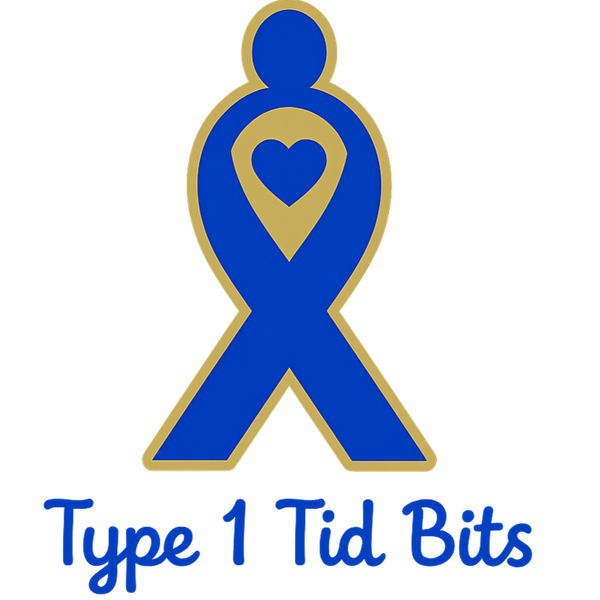For millions of people worldwide, fasting is more than just abstaining from food and drink—it is a spiritual practice, a cultural tradition, and a way of deepening faith. From Ramadan in Islam to Yom Kippur in Judaism, from Lent in Christianity to Ekadashi fasting in Hinduism, these observances are deeply meaningful.
But for those living with type 1 diabetes (T1D), fasting presents unique challenges. The delicate balance of food, insulin, and blood sugar can be disrupted when eating and drinking patterns change dramatically.
The good news? With careful planning, open communication with healthcare providers, and flexible strategies, many people with T1D can fast safely while staying connected to their faith.
Why Fasting Affects Blood Sugar
Fasting changes your body’s usual rhythm. For someone with T1D, this can have a big impact on blood sugar control:
-
Extended gaps without food: The body may run low on glucose, leading to hypoglycemia (low blood sugar).
-
Breaking the fast with large meals: After hours of fasting, it’s tempting to eat quickly or choose carb-heavy foods, which can cause sharp spikes.
-
Changes in sleep and activity: Religious observances often involve altered schedules—late-night prayers, early morning meals—which disrupt usual insulin timing.
-
Dehydration risk: Without fluids, insulin absorption can change, and high blood sugars can become more dangerous.
Preparing for a Safe Fast
1. Speak with Your Healthcare Team
-
Discuss your fasting plans well in advance.
-
Your doctor or diabetes educator can suggest insulin adjustments and monitoring routines tailored to your body’s needs.
-
They’ll also help determine whether fasting is safe for you personally.
2. Understand the Religious Perspective
Most major religions acknowledge that fasting is not meant to harm health. Many allow exemptions for medical conditions—including diabetes. For example:
-
In Islam, people with health risks are excused from fasting during Ramadan.
-
In Judaism, Yom Kippur fasting is waived if life or health is at risk.
-
Christian traditions often allow modified fasting or alternative forms of sacrifice.
Understanding these teachings may ease guilt if fasting is not safe.
3. Create a Structured Plan
-
Plan meals before and after fasting hours.
-
Stock up on glucose tablets, balanced snacks, and hydration options for when you are allowed to eat.
-
Prepare your family or faith community to support you if you need to break the fast unexpectedly.
Practical Tips for Fasting with T1D
Monitoring
-
Check blood sugar more often. Fasting does not mean you should avoid testing.
-
A CGM (Continuous Glucose Monitor) is extremely helpful for spotting patterns and alerts.
-
Keep a record of readings—this helps identify safe adjustments.
Insulin Adjustments
-
Basal insulin: Often needs reducing to lower the risk of hypos during fasting hours.
-
Bolus insulin: May need adapting for larger meals after breaking the fast.
-
Timing: Shifting injections or pump settings around altered meal times can be crucial.
(Always do this under professional guidance.)
Nutrition Choices
-
When breaking the fast: Start gently—water, a small serving of fruit, or dates (for Ramadan), followed by a balanced meal with protein, healthy fats, and complex carbs.
-
Avoid “sugar crashes”: Very sweet or fried foods may spike blood sugar quickly and cause later drops.
-
Focus on fibre and protein: These keep you fuller longer and release glucose steadily.
Hydration
-
Replenish fluids whenever permitted. Dehydration increases risks of high blood sugar and ketoacidosis.
Know When to Stop Fasting
Religious leaders and healthcare providers agree: breaking the fast is essential if blood sugar control becomes unsafe. End your fast if you experience:
-
Severe hypo (blood sugar <3.9 mmol/L / 70 mg/dL)
-
Severe hyperglycemia (>16.6 mmol/L / 300 mg/dL)
-
Dizziness, vomiting, confusion, or signs of dehydration
Health comes first—fasting should never endanger your life.
Emotional & Spiritual Balance
It’s natural to feel conflicted if you can’t fast in the same way as others. But remember:
-
Faith values intention. Your commitment and spiritual practice are what matter most.
-
Alternative acts of devotion (charity, prayer, volunteering) are recognised across many traditions.
-
Community support is vital—talk with your faith leaders about safe alternatives.
Many people with T1D find peace in blending flexibility with devotion.
Final Thoughts
Fasting with type 1 diabetes is possible for some, but it requires planning, medical guidance, and self-awareness. By monitoring blood sugars closely, adjusting insulin, breaking the fast carefully, and prioritising hydration, you can honour both your faith and your health.
And remember: choosing not to fast when it’s unsafe is not a failure—it’s an act of wisdom, responsibility, and respect for the body you’ve been given.

